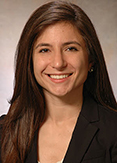Objectives:
To define a population of interest for a family-oriented multidisciplinary team-based care model and parameters by which to identify these cases using information available in electronic medical records
Background:
Family, broadly defined as a group caregivers and dependents associated by close social bonds, impact health across each other’s lifetime. The mechanism of this influence varies, spanning a spectrum from shared biochemical exposures, like cigarette smoke, to social determinants of health (SDOH) such as food insecurity or difficulty accessing care. To this end, a nascent body of evidence suggests incorporation of caregiver or family needs into patients’ care plans leads to more effective health management. There is growing interest in the promise of a family- oriented team-based care delivery to improve long-term health outcomes, particularly for vulnerable or underserved communities, but fragmentation across healthcare infrastructure and technology create significant barriers to implementation. As a result, there exists little data documenting experience with or value of this model.
The Massachusetts General Hospital (MGH) Medicaid Accountable Care Organization (ACO) has sought methods to pilot this delivery model that circumvent existing structural barriers. Phone numbers were found to be an effective means to identify family members of index pediatric patients with high utilization, information otherwise not documented in the electronic medical record (EMR). Using this data, summarized in an electronic dashboard, and clinician judgement, the ACO selected family cases to discuss in a multidisciplinary “Complex Family” Review (CFR) to address the patients’ unmet psychosocial or medical needs. This preliminary test of family-oriented care delivery has faced several operational challenges, including identification of candidate cases.
This project aims to better characterize the population that would most benefit from this intervention and strategies to more systematically identify these families using the limited information available in the EMR. Collectively, these findings will be used to plan an IRB-approved pilot of family-oriented team-based care. Results of such a pilot could provide the first demonstration of value of this care delivery innovation, a potentially scalable means to address health disparities.
Methods:
- Performed a literature review and solicited stakeholder expertise regarding multidisciplinary team- based care, utilization patterns signaling unmet SDOH, and care delivery implementation
- Engaged in experiential learning through CFR to identify effective clinical and operational practices
- Performed a qualitative and quantitative analysis of families selected for CFR and thematic analysis of multidisciplinary discussion
Results:
A coherent definition of the medical and psychosocial features of the target population for CFR, a data- based methodology for identification of family cases within the EMR and an assessment of operational practices to facilitate a scalable CFR pilot.
Future Directions:
- Incorporating methodology into the CFR electronic dashboard
- Planning formal CFR pilot with an explicit operational protocol and defined outcome measures to demonstrate the value of team-based family-oriented care as an innovative care delivery model
Preceptor: Dr. Alexy Arauz-Boudreau MD, MPH


